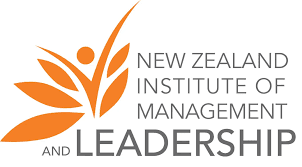Skillbox - Practical Coaching Conversations
My notes
A fast paced environment is not desirable for outcomes, slow down!
Reflect on my own behaviour, and my responses.
Consider digital wellbeing of your staff. Phones away and on silent in meetings. Screens down.
Emotions drive people. People drive productivity. Being in tune with the emotions of your people is vital.
Listen to understand. Push judgement away, it is not helpful. Lean in and be curious instead!
Coaching is:
Solution focused, results orientated, enhancing performance, future focused
It is always an intentional conversation - focused on improving the person as well as the task at hand.
Seek permission first, to go into a coaching conversation so the person knows what you are doing!
Avoid why questions and closed questions. Use what and how instead.
Being PRESENT is vital. Be where my feet are.
The coachee does most of the talking and the thinking. The coach is a sounding board and is raising awareness by using clever questions.
Focus on the desired outcome, not the problem.
Clear emotions before the meeting, have a script.
Hold the space. Silence is powerful.
Stick to one question, wait and listen.
Tread lightly in the world of the other person.
Lean in.
G - settle on the goal / expected outcome
R - reality of where things are at present and what we know
R - reflection on what has been discovered so far, checking in
O - options of what the alternatives are, exploring all realistic options
W - what next, way forward, commitment, ID obstacles
BE CURIOUS
BE COMPASSIONATE
LISTEN
Developmental coaching - developing professionally. Career coaching - career planning.
Provocation:
Does everyone feel valued in our organisation? How do we know? Do they think their voice matters?
How is our VAULT. Sideways convos? Gossip? Confidentiality respected at all times?
Effective Questions for Coaching Conversations
Here are some powerful questions to guide coaching conversations and help individuals reach their full potential:
Goal-Setting and Motivation
- What is your most important goal right now?
- Why is this goal important to you?
- What steps have you taken so far to achieve this goal?
- What challenges or obstacles are preventing you from making progress?
- What motivates you to keep going, even when things get tough?
Self-Awareness and Reflection
- How do you feel about your current situation?
- What are your strengths and weaknesses in relation to this goal?
- What do you think is holding you back?
- What have you learned from your past experiences?
- How can you improve your self-belief and confidence?
Problem-Solving and Decision-Making
- What are the possible solutions to this problem?
- What are the potential risks and benefits of each option?
- What is the best course of action based on your analysis?
- What support or resources do you need to implement your plan?
- How will you measure your progress and make adjustments as needed?
Growth and Development
- What do you want to learn or improve on?
- How can I support your professional development?
- What new skills or knowledge would be beneficial for you?
- What are your long-term career aspirations?
- How can we align your current goals with your future ambitions?
Open-Ended Questions
- Tell me more about...
- Can you elaborate on...
- What do you think about...
- How do you feel about...
- What do you see as the challenges and opportunities?
Remember, the goal of coaching is to facilitate self-discovery and growth. By asking open-ended, thought-provoking questions, you can help individuals explore their thoughts, feelings, and beliefs and develop their own solutions.
Would you like to explore any of these questions further, or do you have a specific coaching situation in mind?
Book: A Guide to Possibility Land: Fifty-One Methods for Doing Brief, Respectful Therapy

Comments
Post a Comment